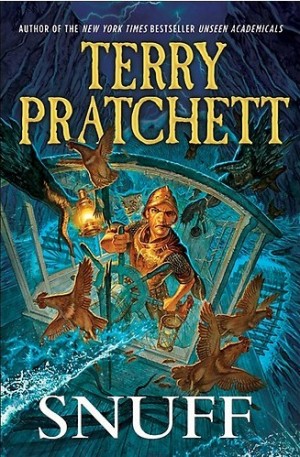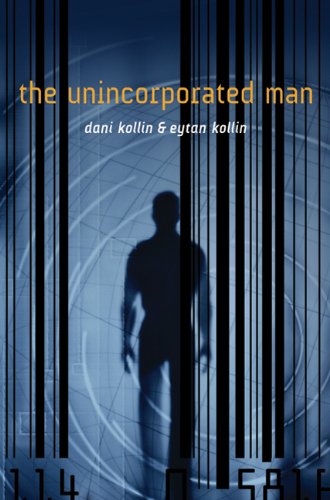
Terry Pratchett, the author of Snuff, our July Lightmonthly Read, has been diagnosed with an early form of Alzheimer’s. No longer able to type, he now reportedly dictates to a software program. This was the first time I had read a Pratchett novel, and in researching the author and his book, I came across a couple of interesting things. First, the novel was scoring significantly lower on sites like Amazon than other Pratchett novels, and second, many of the book’s detractors were bewildered by what they had read, some of them seriously proposing that someone other than Pratchett had written the work. I can have no opinion on that, but learning that his earlier works were of a markedly different style does make me more inclined to give them a try.
Snuff is a Discworld novel, the most recent in a long line of stories from that fictional world. It tells the story of Sam Vimes, a “copper” in the City Watch of Ankh-Morpork who has married into aristocracy. An incorrigible workaholic, he is practically forced into a vacation outside the city, at the manor that he has inherited. While there, he discovers a murder and, relieved to have something to do that is work-related, investigates.
There was more libertarianism in this work than in the other finalists for the Prometheus Award, save for one, and I appreciated that. The main thrust is an exploration of goblins as sentient beings and Vimes’s chafing at the society that so badly esteems them and so poorly treats them. While much of it is a mere libertarian-friendly argument against bigotry, the novel increasingly turns towards the question of law and rights. Though it never delves as rigorously into the question as one would expect from, say, Hans Hermann Hoppe, there are a number of comments and even a discussion or two that dance around the theme of natural law versus man’s execution of his laws.












